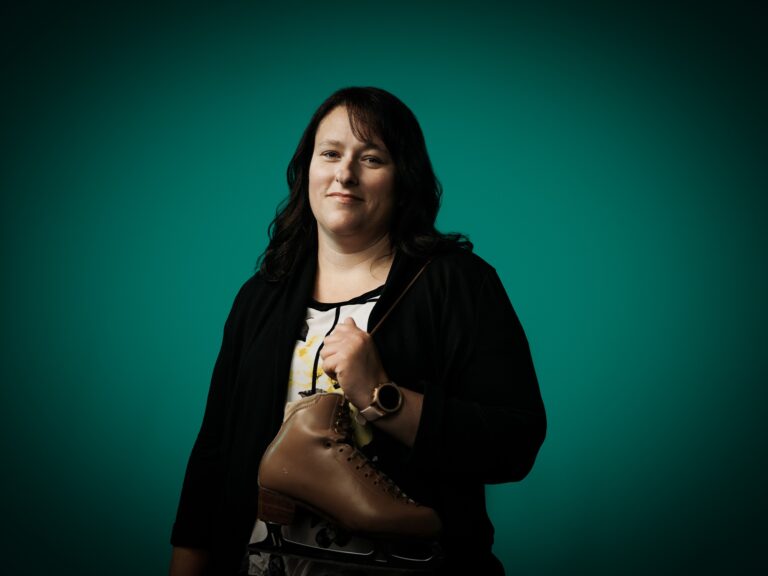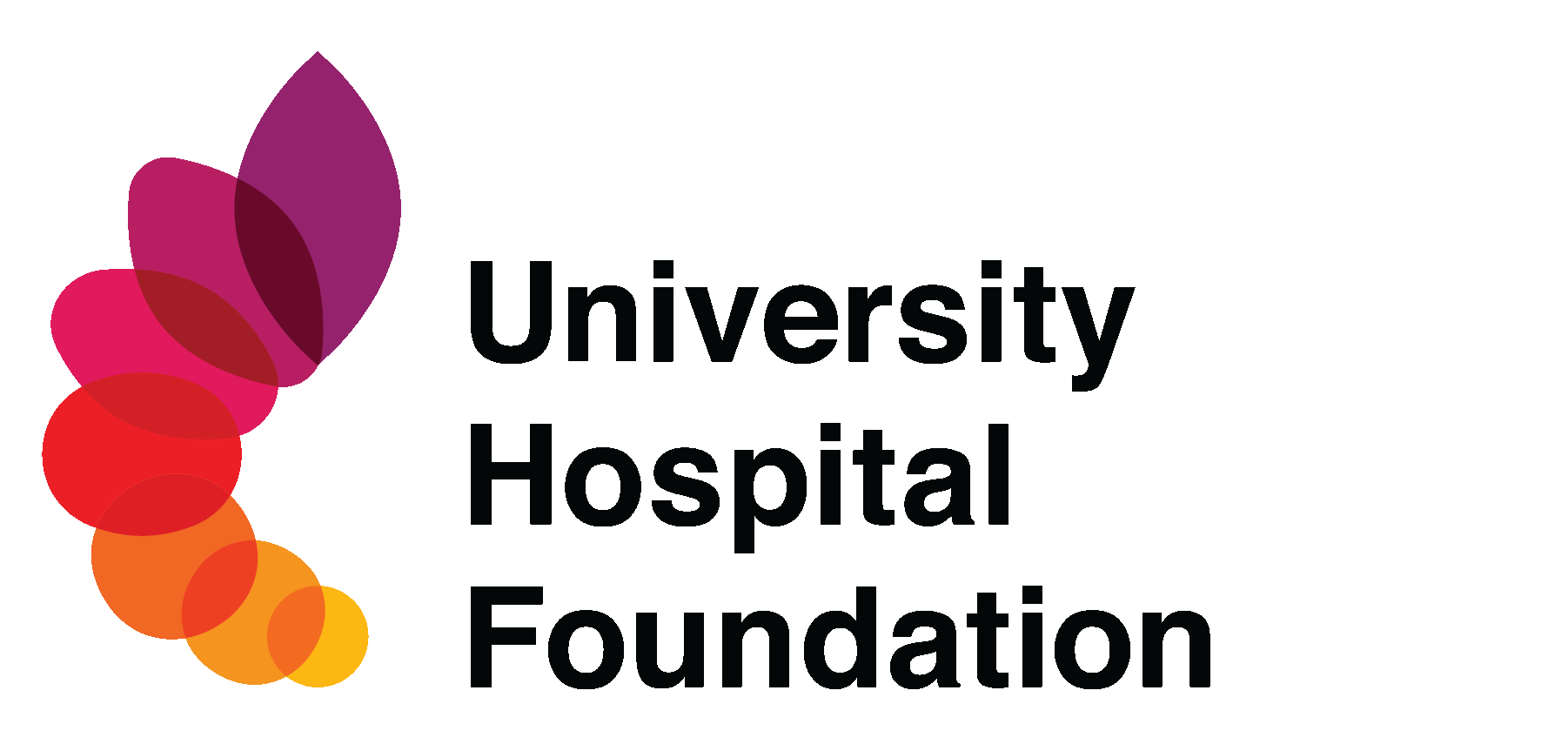- 1-833-448-3843 Make a call.
- info@givetouhf.ca Drop us an email.
- We are located in Edmonton, Alberta
Mandy’s Maz Story
 Mandy Rouselle is alive today because of the Mazankowski Alberta Heart Institute.
Mandy Rouselle is alive today because of the Mazankowski Alberta Heart Institute.
At 36, an active wife and mother, and an avid skater and coach, she thought she was the picture of health. She had no history of heart problems. She even had tests done after she lost her mom to heart failure, and was told her chances of a genetic heart issue were slim to none.
But, on October 6th, 2016, just after kissing her daughter Avery on her way out the door to school, Mandy started to feel dizzy. She was debating calling in sick to work, when she felt faint and had to lie down immediately. She passed out. When she came to a few minutes later, she was disoriented and called her husband Chris. She asked him to call an ambulance.
Thankfully he called 9-1-1 right away, because moments after Mandy hung up the phone, she passed out again.
The ambulance rushed her to the nearest hospital, where they discovered her heart rate was 195 beats per minute. The doctors had to shock her heart to get it back into a normal rhythm. They didn’t know it yet, but Mandy was going into complete heart failure.
“I was so scared that I’d never get to see my daughter grow up. That I’d have to say goodbye to my husband. I felt utterly powerless.”
Receiving Life-saving Treatment at the Maz
She was transferred to the Maz for further testing. Her first night there, her heart rate spiked to 215 beats per minute. The last thing she remembers is being hooked up to beeping machines. She woke up 14 days later with a Ventricular Assist Device (VAD), a mechanical heart, which regulated her heart rate and pumped blood through her body, taking over for her own heart. She had been close to dying, her own heart too weak to beat on its own.
Chris had to fill Mandy in on what happened during those 14 days. She has no recollection of this time, although her husband says she was chatting with nurses and family members, and reassuring her daughter that all of the scary tubes and machines were making her mom better.
“The cardiac team at the Maz had discovered that my heart, liver, and kidneys were all shutting down, because my heart was only functioning at 15 per cent. They spent the next few days performing tests and trying to find the best treatment for me,” said Mandy.
After a couple of days, doctors tried to give her body a chance to recover, and put her on a special life support machine called ECMO (Extracorporeal Membrane Oxygenation). For six days, the ECMO machine took over the function of her heart and lungs. But when they tried to take her off it, she started to decline again.
That’s when they decided to insert her VAD.
She spent the next three months at the Maz in recovery and rehabilitation, regaining the strength to stand up on her own, walk and even feed herself, because of how long she was on the ECMO machine.
“For someone like me, who values her independence, it was hard to accept the help of two nurses, just to stand on my own two feet. But through it all, my doctors, nurses and healthcare team were incredible. They cared for me with such dignity and respect. In fact, they treated me like family, no matter what was going on. It makes a world of difference.”
Mandy is so thankful that the Maz is here in Edmonton.
“I know it made all the difference to my family, having this level of care, so close to home. Being able to see Chris and Avery every day gave me so much strength.”
Since Mandy’s heart wasn’t going to recover on its own, she was added to the transplant list.
Getting a New Heart and a Second Chance
In March 2019, she got the call from her cardiologist at the Maz. A heart had become available and she needed to come to the hospital as soon as possible. At only 39, she received her heart transplant and a second chance at life.
Now, it’s been more than one year since her transplant. Starting a new routine after the surgery was difficult and she had to find a new normal. Although her life is different now than it was before, she is thrilled with how much her life has improved since before her transplant. Even simple tasks like driving Avery to school, are full of joy.
She volunteers her time by talking to other young women who are recovering from VAD surgery. She knows what they are going through and how much it helps to have someone to talk to.
This is Mandy’s way of giving back.
Mandy is proof of the importance of giving back in whatever way you can. Because without the generosity of donors, the Maz wouldn’t have the state-of-the-art equipment, like ECMO. The University of Alberta Hospital now has the second largest ECMO program in Canada, with around 50 patients each year. ECMO kept Mandy alive and let her heart rest. The Maz wouldn’t have the best cardiac care teams, who implanted her VAD and gave her a heart transplant. The Maz wouldn’t be here today without donor support.
And Mandy wouldn’t be here. Living and loving her life and sharing her story.
